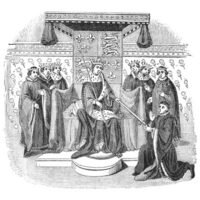Pennsylvania Man Charged With Fraud For Selling Forgeries Of Renaissance Era Printing Blocks

If a museum discovered that a painting it had been displaying for decades was not, as it claimed to be, the work of a famous artist who lived centuries ago, but rather a more recent forgery, this would be front page news. Lots of people buy artwork, not for museums, but for their own private collections, and even though they don’t pay millions of dollars for each piece, the artwork is still expensive, and they still make a reasonable effort to ensure that the pieces they are buying are genuine. More numerous still are the people who buy replicas of famous artwork; you have probably seen a poster of Monet’s water lilies or Van Gogh’s sunflowers on the wall of an office or college dorm room at some point in your life. There is no harm in buying or selling fakes of old works of art if the buyer knows that the piece is not an original and the price point reflects this. If you sell a copycat piece of artwork, though, and the buyer thinks that it is genuine and pays accordingly, though, there can be trouble. If you are facing criminal charges related to the sale of artwork, contact a Pittsburgh white collar crime lawyer.
Which Criminal Charges Apply If You Are Accused of Selling Fake Artwork?
There is not a separate crime for the sale of fake artwork. You could face charges for any of a variety of financial crimes, depending on your role in the production or distribution of counterfeit works of art. For example, you could face charges for wire fraud if you communicated with buyers online and made statements to indicate or imply that the artwork was genuine. A possible defense to fraud charges in this case would be that you reasonably believed that the works of art were originals, and someone else deceived you.
In the News
Printing blocks are wooden blocks engraved so that they act as a stamp for printing images on paper or fabric. Starting in the 15th century and continuing for several hundred years, they were a common way to illustrate printed books. People continue to make original printing blocks today. Earl Marshan Washington, however, made a career of selling printing blocks of recent provenance for a high price by misleading buyers into believing that the blocks were from the 1700s or earlier. Over the course of more than a decade, Washington defrauded buyers, assisted first by his wife and then, after his divorce, by his girlfriend. The scheme unraveled when a couple in Pennsylvania complained to police that the blocks they had bought from Washington were fakes. Washington, 61, pleaded guilty. The court sentenced him to 52 months in prison followed by three years of supervised release and ordered him to pay just over $203,000 in restitution to buyers, including, among others, the Pennsylvania buyers and a couple in France.
Contact Gary E. Gerson About Criminal Defense Cases
A criminal defense lawyer can help you if you are facing criminal charges for forgery of artwork. Contact the law offices of Gary E. Gerson in Pittsburgh, Pennsylvania about your case.
Source:
tristatealert.com/phony-fine-art-dealer-sentenced-to-over-4-years-in-federal-prison-after-charges-out-of-pa/
